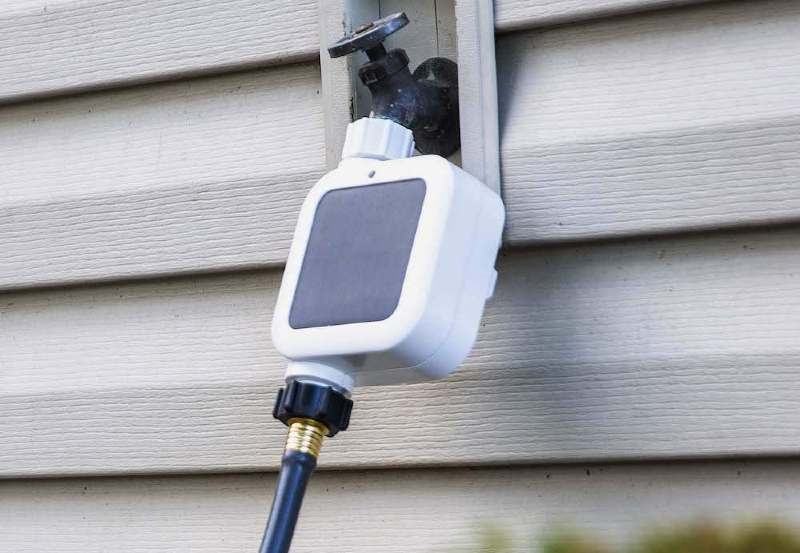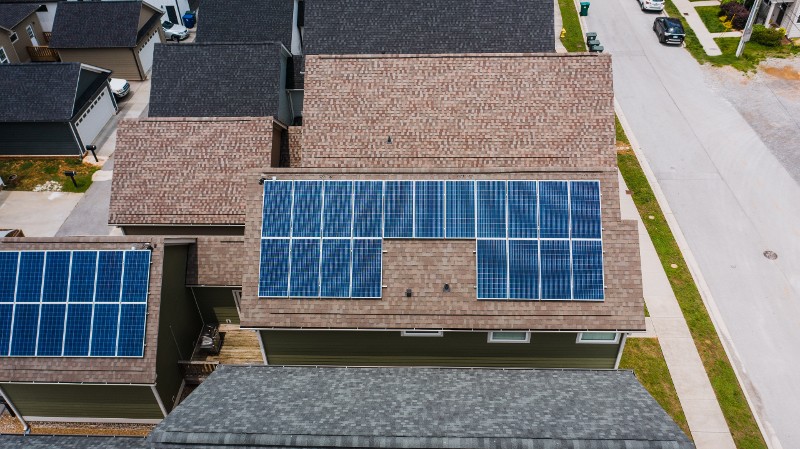New Jersey remains one of the most solar-friendly states in the nation, thanks to strong incentives and a progressive energy landscape.
Understanding solar panel costs here in 2025 means more than just looking at sticker prices—it’s about factoring in rebates, incentives, and the long-term value a system can deliver.
This guide covers current average prices, key variables that impact what you’ll pay, and clear strategies for maximizing system savings.
We’ll also break down the latest state programs and local market trends to help you make smart decisions for your home.
Whether you’re a first-timer or looking to upgrade, you’ll find actionable information for navigating New Jersey’s unique solar market.
Average Solar Panel Costs in New Jersey (2025)
The average price for residential solar panels in New Jersey has stabilized in 2025, with most homeowners seeing installed costs between $2.70 and $3.10 per watt before solar incentives in New Jersey.
For a standard 5 kW system, total installation costs typically range from $13,500 to $15,500 upfront, depending on equipment brand, installer rates, and project details.
After applying incentives like the federal solar tax credit (ITC), many residents pay closer to $9,500–$10,900 for a 5 kW system.
Some homeowners report higher quotes, especially for premium panels or complex roofs, while others see lower costs during seasonal promos or bulk neighborhood projects.
Larger homes with higher energy use often require 7–10 kW systems, pushing pre-incentive totals to $19,000–$29,000 or more.
In densely built-up areas or South Jersey suburbs, competition among installers can bring prices down, while rural or shore areas sometimes see modest cost increases tied to travel or permitting.
Key Takeaway: In most cases, NJ homeowners can expect to pay $2,700–$3,100 per kW installed before incentives, with real-world prices shaped by system size, local market conditions, and incentive eligibility.
System Size and Price Breakdown
Solar installation costs in New Jersey scale directly with the size—measured in kilowatts (kW)—of the system being installed.
Here’s a comparison of typical installed costs before incentives for the most common system sizes:
| System Size | Estimated Total Cost (Pre-Incentives) | Typical Home Size/Usage |
|---|---|---|
| 4 kW | $10,800 – $12,400 | Small home/low energy use |
| 5 kW | $13,500 – $15,500 | Average NJ home |
| 7 kW | $18,900 – $21,700 | Large home/high energy use |
Equipment quality, installation labor, electrical upgrades, and roof complexity all impact these prices. High-efficiency panels or integrated battery systems can push costs notably higher.
For most New Jersey homes, a 4–7 kW system covers 80–100% of typical annual electricity needs, but energy-intensive households may need even more capacity.
Pro Tip: Request system size recommendations based on your last 12 months of utility bills for the most accurate pricing and savings forecast.
What Influences Solar Panel Pricing in New Jersey?
Solar panel system costs in New Jersey aren’t one-size-fits-all. They’re shaped by a mix of technical, regional, and market-driven variables that go beyond just equipment sticker prices.
System size is the primary cost driver. Larger systems generate more power, but they also require more panels, hardware, and labor—so expect a notable price jump for each extra kilowatt.
Panel technology matters too. Monocrystalline panels are more efficient but pricier than polycrystalline, while inverter and battery choices can add significant cost (and future value).
Don’t overlook installation complexity. Steep roofs, shading, or old wiring raise labor costs. Permitting fees and inspection standards also vary by township—costs in Princeton may differ from Newark.
Finally, installer reputation, warranty offerings, and service level all impact your upfront investment—and your home’s long-term solar value.
Key Takeaway: New Jersey solar prices hinge on system size, panel quality, roof and site specifics, and who does the work. Each factor shapes both the initial quote and lifetime performance.
Equipment Quality and Types
The panels and supporting hardware you choose can shift your solar price by thousands of dollars.
Monocrystalline panels offer premium efficiency—often 20% or higher—but their higher cost can add up for large arrays. Polycrystalline panels are less expensive, but you’ll need more of them (and more roof space) for the same output.
Inverter choices, like microinverters or optimizers, improve system performance but bump up price. If you want battery storage, make sure your inverter supports it—and budget for the $8,000–$15,000 cost for whole-home backup.
Solid warranties (20–25 years for panels) and reputable brands protect your investment, while quick-to-fail components usually mean greater hassle and replacement costs down the line.
Pro Tip: Ask for efficiency ratings, brand specs, and warranty details in every quote to make cross-company comparisons easy.
Installation Workmanship and Company Selection
Who installs your solar is just as critical as which equipment you pick. Seasoned, well-reviewed companies generally charge more, but they deliver better workmanship and future service.
Local expertise matters—a Newark-based installer knows the unique permitting, roof types, and shading concerns of the area, minimizing delays and costly mistakes.
Low-ball bids often mean corners are cut: inadequate roof prep, unpermitted work, or under-trained crews. What seems like a deal can turn into expensive repairs or poor long-term performance.
Check company credentials, reviews, and ask for references. Look for NABCEP certification, local licenses, and detailed workmanship warranties (not just product guarantees).
Pro Tip: If a quote is far below the local average, dig deep. Quality installs rarely come cheap in New Jersey’s competitive solar market.
Solar Incentives, Rebates, and Tax Credits in New Jersey
New Jersey homeowners can dramatically reduce the upfront cost of solar in 2025 thanks to a robust mix of federal, state, and local incentives.
The 30% federal Investment Tax Credit (ITC) remains the largest single incentive, letting you claim nearly a third of your total system cost back on your federal taxes. For a $16,000 system, that’s an immediate $4,800 savings—assuming you have enough tax liability to use it.
At the state level, the Successor Solar Incentive (SuSI) program offers ongoing payments for every 1,000 kWh your system produces, with rates locked in for 15 years. This can add up to $600–$1,200 per year for a typical 7 kW system in New Jersey.
Other standout perks: all solar panel installations in NJ are exempt from sales tax (saving you 6.625%), and any value added to your home is also exempt from property tax assessments. That means your home is worth more, but your tax bill doesn’t rise.
Some utilities and municipalities layer on additional rebates or expedited permitting programs. Always check your local options before signing a contract.
In practice, a Bergen County family installing a $18,000 system in 2025 could see total upfront costs drop below $11,000 after stacking the ITC, SuSI payments, and tax exemptions.
Pro Tip: Apply for incentives early—some programs cap annual funds or change their rules mid-year. Get your paperwork in before your installation is finished to lock in current rates.
Solar Financing Options and Payback Periods
New Jersey homeowners have four main ways to finance solar panels: cash purchase, solar loans, leases, and power purchase agreements (PPAs).
Paying cash offers the highest long-term return, with most buyers seeing payback in 5 to 7 years after incentives. You fully own the system and collect all available tax credits and rebates.
Solar loans reduce upfront costs—sometimes to zero. Buyers still retain ownership and the rights to incentives, though interest payments may add 10-15% to the total cost. Typical loan payback periods fall between 7 and 9 years.
Leases and PPAs mean little or no upfront payment, but you don’t own the system. Instead, you either pay a set monthly lease or a variable rate per kWh. These options provide instant energy savings but less lifetime ROI and no eligibility for most incentives.
A 6 kW system costing $15,000 before incentives could drop below $10,500 after the 30% federal tax credit, which shortens all payback calculations significantly.
Pro Tip: Add up all incentives and predicted utility bill savings to get a clear picture of your real solar payback period before signing any agreement.
Are Solar Panels Worth It in New Jersey? Savings and ROI
New Jersey ranks among the best states for solar investment thanks to high electricity costs, strong incentives, and supportive net metering policies.
For an average homeowner, solar can provide significant bill savings—often 75% or more per year—starting from the first month after installation.
The typical 6 kW system costs around $14,000 before incentives in 2025, but with the federal tax credit and New Jersey’s SuSI program, net costs drop closer to $9,500 or less.
With yearly electric bills easily exceeding $1,500 for a midsize home, most owners reach payback in 6–8 years—sometimes under 6 if combining SREC/SuSI payments and maximizing incentives.
After payback, solar panels deliver pure savings and protection from future utility rate hikes, which have risen by 4% a year on average over the past decade in New Jersey.
Real examples show solar owners saving $18,000–$30,000 over 20 years, even as incentives taper off or local utility rates fluctuate.
Net metering also boosts long-term value, with credits for excess generation rolling forward, making high summer outputs extra valuable during lower-sun months.
Key Takeaway: Most New Jersey homeowners can expect solar to pay for itself within 6–8 years, then generate substantial long-term returns—especially when all incentives are stacked wisely.
While not every roof or home is ideal for solar, rising energy prices and generous state programs make the risk-reward equation extremely favorable for most New Jersey residents.
How to Maximize Your Savings When Installing Solar
Getting the most value out of your solar investment in New Jersey starts before the first panel is even installed.
Always compare multiple installation quotes—at least three—to ensure you’re getting a fair price for both equipment and labor.
Time your purchase window to align with incentive cycles or grant deadlines, which can change throughout the year and significantly reduce your upfront costs.
Choose a system size that matches your actual energy usage, not just your roof’s full capacity; this helps you avoid overpaying for panels you won’t use.
Dig into every rebate and incentive program available, from state-level grants to utility provider rebates and any city-specific offers.
If your roof needs work, consider bundling repairs or replacements with your solar installation to save on scaffolding and labor fees.
Don’t forget to ask installers about negotiating contract terms, especially warranties and post-installation service support.
Pro Tip: Some New Jersey utilities offer “bonus” rebates or time-limited programs—ask each installer what hyperlocal incentives may apply to your address.
Comparing Solar Quotes and Installer Options
To secure the best deal, collect detailed written quotes from at least three certified installers serving your area.
Check reviews on trusted platforms and confirm each provider’s NJ state license, NABCEP certification, and local project experience.
Scrutinize each quote for line-item clarity: top-tier manufacturers, warranty periods, and specifics on monitoring or aftercare.
Watch for unusually low prices or vague estimates, which can signal cheap equipment, missing permits, or unreliable after-sales support.
Don’t be afraid to negotiate contract details—reputable firms are transparent about costs and willing to match or explain differences.
Pro Tip: High-value proposals don’t just offer the lowest price. Look for strong service records, detailed project plans, and robust warranty guarantees.
Best Solar Companies and Installers in New Jersey
New Jersey’s solar market is packed with reputable installers, from large national players to standout local specialists.
Leading companies like Momentum Solar and Trinity Solar offer extensive New Jersey coverage, NABCEP-certified teams, and robust workmanship warranties of 10+ years.
Local firms such as Green Power Energy and Infinity Energy are praised for fast response times and personalized service—earning stellar ratings on platforms like EnergySage and Google Reviews.
Community reputation matters just as much as price—look for consistent five-star feedback, transparency in contract terms, and clear warranty explanations.
Avoid installers who can’t provide references, rush you with aggressive sales tactics, or offer vague pricing.
Verified installer directories—such as the New Jersey Clean Energy Program’s list or EnergySage’s curated marketplace—help you compare genuine customer reviews and check certifications.
Pro Tip: Always request project photos and speak to recent customers before signing any agreement. This prevents surprises and ensures the company stands behind its work.
Take the time to ask about service coverage, aftercare support, and response times for warranty issues.
Local Solar Costs by City and Region
Solar panel installation costs in New Jersey aren’t one-size-fits-all—what you’ll pay in Jersey City or Princeton can differ from rates in Toms River or Atlantic City.
On average, urban and suburban areas like Newark and Edison see slightly lower prices due to more installer competition and streamlined permitting processes.
In smaller towns or rural regions, limited installer choices and extra travel time may push prices $0.10–$0.20 higher per watt.
Local permitting fees, zoning rules, and utility interconnection costs also play a role in the final quote.
Utility rates and incentive eligibility sometimes vary by county, adding another wrinkle to local costs.
For the most accurate pricing, compare quotes from different installers and consult resources like the New Jersey Clean Energy Program or EnergySage’s solar calculator, which provide up-to-date local cost data and heatmaps.
Pro Tip: Always request neighborhood-specific quotes to avoid surprises—costs on your block may differ from townwide averages.
Special Considerations: Roof Condition, Upgrades, and Solar Shingles
Your roof’s age and condition have a major impact on solar project costs in New Jersey.
If your roof is more than 10-15 years old, most installers recommend replacing or repairing it before adding panels.
This can add $6,000–$15,000 or more to your upfront spend, but it prevents future headaches and ensures your system lasts.
Bundling roof work with your solar installation often leads to better pricing and protects new equipment warranties.
Solar shingles, like those from CertainTeed or Tesla, offer a sleek alternative that integrates directly with your roof.
They’re less conspicuous than panels but can cost 2–3 times more at roughly $30,000–$50,000 for an average home.
Traditional panels remain more efficient and cost-effective for most New Jersey homeowners, but solar shingles are gaining attention for premium projects.
Pro Tip: Get your roof assessed early and ask installers for bundled quotes covering both roof and solar—the right timing can minimize costs and construction hassle.
Key Programs and Net Metering in New Jersey
Net metering in New Jersey lets homeowners use their solar panels to offset their entire electricity bill and earn bill credits for any excess power sent back to the grid.
The two major investor-owned utilities—PSE&G and JCP&L—offer robust net metering, with most municipal utilities following similar guidelines.
When your panels produce more energy than you use, the extra kilowatt-hours appear as credits on future bills. At the end of each annual cycle, surplus credits are typically paid out at the lower wholesale rate.
New Jersey’s SuSI program (successor to SRECs) provides an additional fixed payment per megawatt-hour your system generates, directly boosting long-term solar returns. These payments can add up to hundreds of dollars annually for mid-sized systems.
Recent regulatory tweaks have tweaked eligibility and credit rates, so review current policies or consult your installer to optimize savings.
Pro Tip: Track your system’s production and schedule regular reviews to ensure you’re capturing all available net metering and SuSI benefits as program terms evolve.
Frequently Asked Questions About Solar Costs in New Jersey (2025)
How much do solar panels really cost for an average NJ home in 2025?
The typical price for a full residential solar system in New Jersey ranges from $12,000 to $17,000 after federal and state incentives.
Exact costs depend on your system size, roof, and equipment choices.
Can I get solar panels in New Jersey with no upfront cost?
Yes, many installers offer $0-down loans, leases, or power purchase agreements (PPAs).
Carefully review the terms to compare total savings and long-term costs versus a cash purchase or standard loan.
Am I eligible for all state and federal incentives?
Most NJ homeowners qualify for the federal ITC, state SuSI payments, and tax exemptions. You must own (not lease) your system to claim tax credits.
Check specific requirements for utility or municipality-level programs.
What should I look for when choosing an installer?
Prioritize companies with NABCEP certification, solid local reviews, and clear warranties on labor and equipment.
Compare at least three quotes and ask about after-installation service and support.
How do I maintain my solar panels in New Jersey’s climate?
Panels need little maintenance except for the occasional cleaning and annual inspections.
Most systems come with 25-year equipment warranties—many installers offer maintenance plans for extra peace of mind.
Join our solar microdosing newsletter and get bite-sized, easy-to-understand insights into the world of solar energy.
From how solar panels work to building your own DIY solar system, we’ve got you covered.








